#yes they’ll critique but they’re not looking to be harsh for the sake of it
Explore tagged Tumblr posts
Text
more people need to watch the great pottery throw down
#fuck the Hollywood handshake. Keith Brymer Jones will literally cry at how beautiful people’s pieces are#on a serious note though it feels so so wholesome in a way bake off hasn’t felt for a while#Keith and Rich are SO genuinely enthusiastic and have so much love for the craft and clearly enjoy seeing the contestants’ work so much#yes they’ll critique but they’re not looking to be harsh for the sake of it#and when they praise it’s not like ‘hmm you’ve earned me approval’ it’s like. genuine enthusiasm and happiness to see a piece that they find#so beautiful
5 notes
·
View notes
Text
Unpopular Opinion: Not all art exists to be critiqued.
And more than that, I thoroughly believe that critique is unnecessary and uncalled for unless the artist asks for it first.
This is going to get a bit lengthy, so bear with me. This is something that has been on my mind for many, many years. After having college art classes where group critiques felt very surface-level and one-sided, I think it’s high time that the art community, and any consumers of artistic media, take a step back and question how critique should be handled.
The immediate response to someone who resists critique is usually “Well you’ll never improve if you can’t handle critique” or “The world is full of opinions you don’t want to hear, so learn to get over it.” But I feel like that kind of callousness, and that need to shove an opinion on someone who didn’t ask for it, is incredibly inconsiderate and selfish. Last I checked, people are not required to tolerate opinions they don’t want to hear. And that’s all that critique is: an opinion. Not an end-all solution to something someone is struggling with. And people need to stop acting like their opinions are the Holy Grail of advice, and that if an artist doesn’t accept it, it means they’ll miss out on the chance to improve.
I feel like online critique is especially harsh, because many artists who start off online are very immature and stubborn. We’ve all seen that artist that uses “iT’s JuSt My StYLe!!” to excuse bad anatomy. We’ve seen newbies use traced doll bases or blatant art theft under the guise of “Well I’m still learning!” We’ve seen over-confident artists who fly off the handle over people who are genuinely trying to help them. And yes, those kinds of people are very irritating, and give artists a bad name in general. But stop assuming that every single artist that won’t take every critical comment with a smile and a thank you is a whiny stubborn brat that can’t handle critique. Oftentimes, artists have very valid reasons as to why they aren’t mentally and emotionally equipped to receive criticism in that particular moment. There’s a difference between constructive criticism, and pointing out flaws just for the hell of it. You can’t convince me for a moment that someone coming onto a drawing unprompted and commenting “Lol those eyes look shitty” is meant to be helpful or encouraging. It’s just dickish. And it’s only ever those types of dicks that then turn right around and say “lol learn to handle critique”. It really doesn’t cost anything to have common courtesy. “You should always be willing to accept critique” implies that artists should always be striving for perfection, which can be a very unhealthy mindset to have, especially towards a hobby. Yes, I believe that in some circumstances, aspiring artists should definitely be willing to hear out critique for the sake of improving their craft. If you’re entering art into a legit contest, if you’re planning on honing your craft in order to start selling your work, if you’re wanting to run a professional gallery exhibition, then by all means, you should be willing to reach out for professional opinions and advice. But NOT all art is made with the intentions of being “professional” quality. IMO, artists don’t need to constantly be trying to strive for improvement with every single piece of art they make. They shouldn’t have to treat a quick drawing they’re making as stress relief like a school project or an entry for a gallery exhibition. It really takes away the fun of doing something they love if the pressure is constantly on to do something perfectly.
Perfection is overrated. It’s also bullshit. If someone spends more time trying to be perfect, they’re going to develop an unhealthy complex rather than just learning to have fun. Not everyone is making art for the sake of winning awards or entering into some professional gallery. So maybe stop trying to put on the pressure that art can only be valid if it is flawless, and winning awards or making money.
Artists are already their own worst critics. Unless someone is going “Yeah my art is great and doesn’t need to be improved”, chances are they’re already constantly criticizing themselves and working to push past their own doubts about their art. So giving an unprompted critique can feel like an affirmation of their insecurities, and may even kill their drive to make more art. Anxiety, insecurity, and other mental health issues can be negatively affected by unprompted critique.
Let’s kill the mindset that people aren’t allowed to shelter themselves from things that can be emotionally distressing, yeah? If something makes someone feel bad, it is not your place to make fun of them for it. And on the flipside, the idea that artists should take critique just because the intention behind it is sincere is laughable. Because regardless of intention, it can still have a negative impact on someone who has been beaten down by these “good intentions” most of their lives. I’ve always hated unwanted advice; not just on art, but on anything. It brings me back to the years and years I spent being treated by my parents and peers that I was incapable of doing anything on my own. The only times I really started thriving and improving was when I did shit behind their back just to prove that I can do things on my own. And being told “it’ll look better if you do (X) instead” just makes those gross feelings resurface. It makes me doubt my own sense of judgment, even after many years of drawing and improving on my own. And finally:
Artists should be allowed to have agency over what kind of feedback they receive. This is why any website that allows feedback usually has the option to delete comments, or block users. It’s why people can be kicked out of public places if their shitty opinions are causing discomfort to those around them. It’s why people can hang up on phone calls. Artists can learn for themselves what techniques should be improved on. They’re more than capable of looking up tutorials, finding free classes, or asking for their own advice. I am my own person, therefore I should be allowed to decide if and when I want to receive critique or advice. I should be allowed to trust my own judgment and skill enough to figure out when I’m happy with how a drawing looks, or decide when something looks off and I need a second pair of eyes. Taking away that agency can make an artist feel like their opinion about their own work ultimately doesn’t matter; that they’re incapable of doing something on their own merit, and that they’re only working to impress other people.
So all in all, it should be common courtesy to hold back on giving critique unless the artist asks for it. And it’s very shallow to jump to the conclusion that any artist who resists critique is doing so out of an unwillingness to improve.
2 notes
·
View notes
Text
Sherlock and the media – Part II
When I wrote this meta about media’s role in BBC Sherlock, I wasn’t really planning to write a ‘Part II’ of it. But then all these great and thoughtful additions to it (see rb notes to the link above) were so inspiring that I can’t resist doing a follow-up. To me it’s easier to see patterns if I try to summarize and structure the various observations and comment on them topic-wise, as well as on a couple of things we seem to agree on. And please feel free to correct me if I’ve gotten anyone’s ideas wrong.
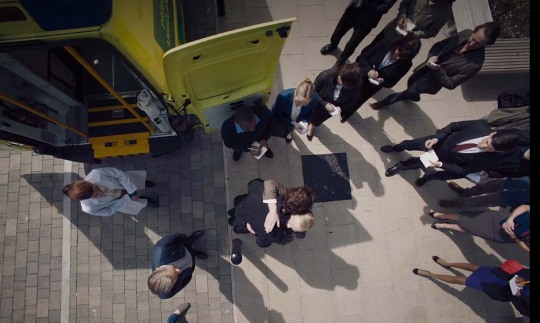
1. The depiction of media in BBC Sherlock is indeed mostly negative
@whimsicalethnographies points out, in addition, that media has the potential to be a positive force in real life, but that’s often not the case; a free press is essential, but the ability to navigate it is just as important. There’s a “huge critique of the media AND the way we consume it” in this show.
And I fully agree with this; media can (and should) play an important investigative and educational role if and when it manages to be an independent source of information. But we mustn’t forget that most of the media is commercial, that its primary interest is to make money. Which means that when the choice stands between trying to be objective and respect people’s integrity on one hand, and bringing sensational news that sell on the other, the latter will often be priority. And as long as we as readers don’t apply critical thinking, a lot of dubious ideas and outright lies will pass for truth, and we’ll tend to consume them and believe them unquestioningly. And I think we see several examples of characters that fall for this in BBC Sherlock, with the results ranging from relatively harmless (Mrs Hudson is now convinced she should never wear the colour cerise because of something a celebrity said on the telly) to disastrous (The Chief superintendent of NSY proceeds to arrest a man who has helped them for years, based on speculations inside his corps and gossip in the media).
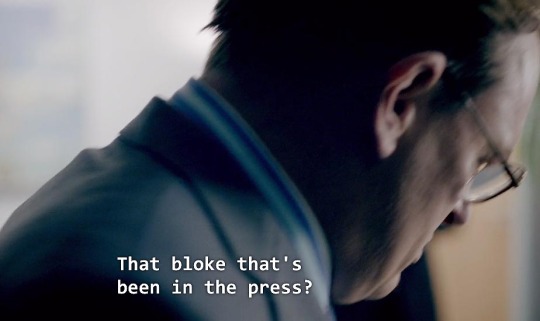
So, source criticism is incredibly important.
I’ll leave the rest under the cut for more patient readers, because this is quite long. :)
@raggedyblue observes that the press never looks well in Sherlock; it’s a “very powerful, two-edged sword” which has “the power to change” when taken critically. But it can also “turn people into herds of sheep” (which I believe CAM condescendingly says right out: ‘a nation of herbivores’).
@221bloodnun also sees an increasing role of media as villains in the show, where Mary appears to be the composite of them all. While John’s main problem is media’s representation of them, Sherlock’s problem is the villains, if I understand it correctly.
So yes; together these things make a terrible adversary for our heroes. I think we have it all in BBC Sherlock; villains who use media as a tool for their crimes (Moriarty), villains who thrive on media (Smith) and media itself being the villain (CAM). And then we have the trickiest part; Mary, who is supposedly in opposition to media (seemingly attacking CAM, seemingly a victim of his blackmail), but actually a big part of the problem (a glossed-over murderer).
@raggedyblue also mentions that one of the few press-related characters in ACD canon is Langdale Pike, who is both source and receptor for gossip. (And “strangely very similar to the description of Mycroft, both are sitting all day in the same place, and despite this, they always know everything about everyone”). In The Adventure of the Three Gables, Watson refers to the press that propagate Pike’s reports as “the garbage papers which cater to an inquisitive public.” (I guess their modern equivalents would be the tabloids?) And in Sherlock T6T, observes @raggedyblue, Langdale appears among the government’s codenamed people who helped edit the video of Sherlock shooting CAM. “That’s not what happened at all. But it is what will be told”. We’re not told who of the five characters present at the hearing is supposed to be ‘Langdale’, but my bet is on Mycroft. :)
To the few media-related characters from canon I’d also like to add Mr. Horace Harker of the Central Press Syndicate, the journalist in The Six Napoleons, whom Holmes lies to in order to take advantage of media’s influence on the suspect.

Holmes lets the journalist make a good story out of the idea that the police are on another track, and Watson comments it like this: “I could not but admire the cunning with which my friend had inserted a wrong clue in the evening paper, so as to give the fellow the idea that he could continue his scheme with impunity”. Manipulation involving media. Hmm.
2. The possibility that Sherlock might have faked his suicide to protect John from being destroyed by media, rather than snipers.
@sherlocks-salty-blog takes this even further: “That would explain why Sherlock is so willing to accept Mary in their life? to kill CAM despite of this could be a death sentence? why he was waiting his death in TST? And willing to acept Mary’s deathly advice to save John in TLD?“
Yes, I think you might be on to something there, @sherlocks-salty-blog. Sherlock behaves very differently in S3 and S4 in comparison to S1-2. He is far more passive towards John leaving him for another person than one would have thought after John’s string of girlfriends; Sherlock even organizes the wedding (something so ‘mundane’ that it would be the last thing I’d expected from him). And his acceptance of ‘Mary’ after her shooting and almost killing him is absurd, to say the least. And then even killing for her sake, telling other people that she is his friend in T6T, and taking blame and a beating from John for her death in TLD. Taken at face value, none of this in HLV and S4 makes an iota of sense. Which is why I believe that it’s all happening inside Sherlock’s head and that it’s actually about something else entirely; I think it’s about guilt, about The Fall and about ‘protecting’ John (and probably himself) from having to face the truth about their relationship, actually being honest to each other. It’s probably also fear of what the press might do to John if they would appear publicly as a couple. I think in general Sherlock feels haunted by the press, and he doesn’t like it one bit.
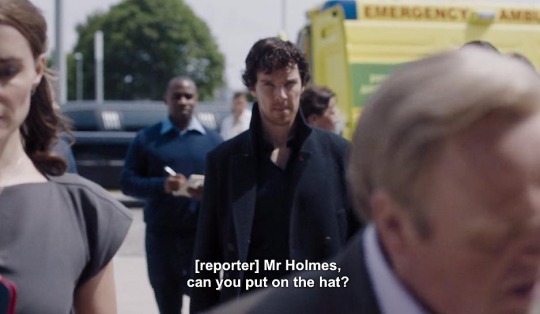
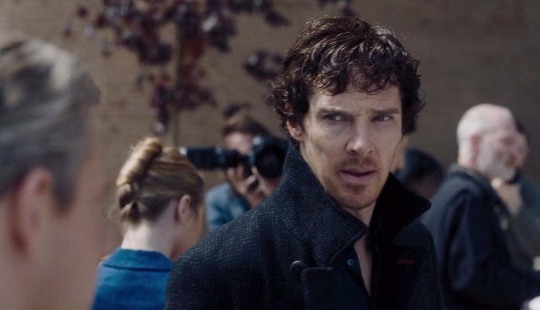
Another interesting observation from @raggedyblue is that CAM and the press are apparently not interested in Sherlock’s drug use; his relationship with John is seen as more scandalous and therefore pressure point. Yes I believe Sherlock learns this the hard way in HLV; you can’t always fool the media. Once they’ve picked up your scent they’ll keep digging. But the total disinterest from the press in Sherlock’s evident drug habits in TLD is still a bit suspicious to me; if anything, this is yet another piece of evidence that TLD happens inside Sherlock’s head. I think this might also be Sherlock’s internalized homophobia speaking; he has probably convinced himself that society will see his sexual orientation as worse than being a drug addict, thus he’s far more reluctant to talk to anyone about his true feelings for John, than about taking drugs. The drugs are rather the excuse, an escape from having to deal with his emotions.
3. As for Sherlock’s public persona, or ‘facade’, I definitely think media plays a role there:
@sherlockshadow recalls an interesting quote from TAB: WATSON: “That is the version of you that I present to the public. I write all of that, Holmes, and the readers lap it up. But I do not believe it. You are a living, breathing man. You’ve lived a life, you have a past. Experiences. Impulses”. To me this confirms that Watson’s chronicles in canon, as well as what we see in the BBC Sherlock show in general, are elaborated products rather than any kind of objective ‘truth’. So it makes sense that the authors would let Watson address this in TAB, which is kind of a mix between BBC Sherlock and canon.
According to @sarahthecoat, The Strand Magazine has become the lens through which we see Holmes, while Holmes himself remains unseen, as exemplified by Holmes hiding in the hansom in TAB.
Yes, I agree, and I think basically the same goes for John Watson’s blog in our times (except for the last post). The interesting thing about BBC Sherlock, however, is that many things are rather shown from Holmes’ perspective. In fact, I believe the whole show is. ;)
4. On a meta level of this show, might there be a message about the media?
@gosherlocked offers the idea that media might symbolize certain parts of the public, of public opinion towards people who are different in one way or the other.
Oh yes, I agree that this might definitely be the case; Sherlock says it himself about CAM (=media):
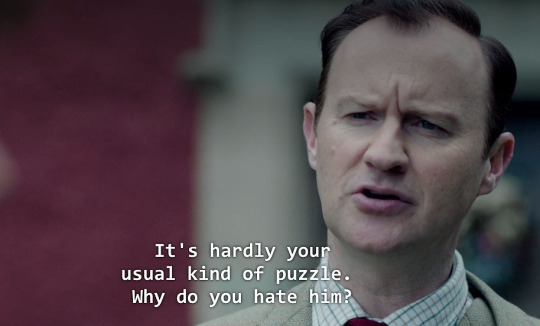


I think media’s behaviour in the show reflects the fact that the LGBTQ issue is constantly joked about and alluded to, but never addressed seriously. Kitty Riley’s prying into Sherlock’s love life or the papers calling John a ‘confirmed bachelor” in TRF are examples of this. I also believe that this is entirely intentional from the show-makers, because I think it’s meant as satire - maybe a kind of satire that (sadly) flies over the heads of most of their audience, and over real life media’s head in particular, but still satire; harsh, damning mockery. And I suspect that what they’re making fun of might be the hypocrisy of the public opinion, the parts of the audience that uncritically swallows whatever hetero norm rubbish of a storyline they’re served without even questioning it - including the part of traditional sherlockian fandom that would be apalled by the prospect of a gay Holmes. Seemingly ‘warm paste’ but subversive under the surface, I believe.
Another good point, made by @elldotsee, is this: “Oh! I also believe that TPTB are doing the same to us IN REAL LIFE. all the interviews, especially since s4 that insist that there was “never any romance” between John and Sherlock, that Martin and Ben never “played at being lovers”, etc etc. they’re using the media to make us believe the fairy tales, just like they told us they were going to in the show. Maybe this is their “big, ground breaking idea”.¨
Yes - that’s exactly what I think too, @elldotsee. I strongly suspect the writers are playing with us this way. In fact, I believe that the main purpose, the central message with this show is not ‘Johnlock’ per se; it’s not to give LGBTQ people their long due representation in the world’s most famous detective story (even if I do believe this will still be their endgame). No, I think this is a comment on the still very much lingering homophobia and heteronormativity, and just how easily people buy into media’s lies and fairy tales about it. I believe S4 is a Dystopia, as @tjlcisthenewsexy has pointed out earlier - a worst case scenario. But I think they’re very deliberately messing around with their audience, trying to teach us a lesson: ‘Think critically, do not just lap up everything you hear from media’.
The cast and crew can say just about anything in interviews, and next time contradict it, and real life media can twist it around a million times; it’s still only the work that matters.
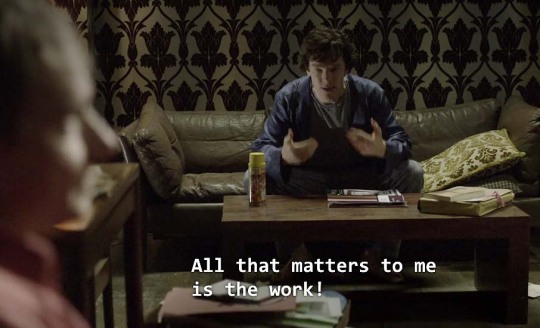
Therefore, If we want answers, we have to look at the actual show, not at what’s said about it in media.
(By the way @elldotsee , you wonder when John’s blog stops updating? As far as I know, that happens shortly after TSoT but before HLV, and Sherlock makes the last post when John is on honeymoon. I wrote about these things in my meta series ‘What happened to Sherlock?’ (X, X, X, X). John types on a jpg-file in T6T.)
5. About ‘straight-washing’
@tjlcisthenewsexy had a lot of interesting additions, some of which I replied to here. One of them was that S4:s function might be to ‘set the record straight’, just as Janine’s interviews about Sherlock being ‘as red-blooded as they come’, did in HLV, thereby denying any gay relationship between him and John.
@sarahthecoat points out something similar; that Janine’s ‘straightwashing’ of Sherlock in the press in HLV could be seen as a parallel to Mary’s ‘straightwashing’ of John by marrying him.
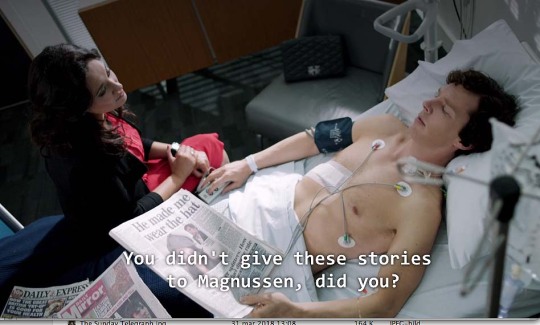
Come to think of it, that’s pretty much exactly the implications of ‘Mary’s role in canon and in Sherlock, according to this excellent analysis by @green-violin-bow: “And there you have it: the central problem of Mary Morstan/Watson, in both ACD canon and BBC Sherlock – she shoots Sherlock in the heart – or does she save his life?“ “Mary Watson’s presence provides Holmes and Watson with a lifesaving alibi”.
Which was probably the only narrative option for them in the Victorian times, where they would have been imprisoned if found together (and that would go for the author writing about them too). While in our time the same solution seems to me like an infuriating backlash, something we should never tolerate.
6. About media and power
@elldotsee lifts several good points, of which I find this one particularly interesting: The name ‘Napoleon’ is associated with three different persons in this show: 1. CAM is referred to as the “Napoleon of blackmail” in HLV 2. Moriarty calls himself the “Napoleon of crime” in TAB 3. Craig the hacker in T6T says that “Thatcher’s like – I dunno – Napoleon now”
To this I’d like to add the conversation between Sherlock and Faith in TLD (transcript by Ariane De Vere, my bolding):
SHERLOCK: D’you know why I’m going to take your case? Because of the one impossible thing you’ve said. FAITH: What impossible thing? SHERLOCK: You said your life turned on one word. FAITH: Yes: the name of the person my father wanted to kill. SHERLOCK: That’s the impossible thing. Just that, right there. FAITH: What’s impossible? SHERLOCK: Names aren’t one word. They’re always at least two. Sherlock Holmes; Faith Smith; Santa Claus; Winston Churchill; Napoleon Bonaparte. Actually, just ’Napoleon’ would do. FAITH: Or Elvis? SHERLOCK: Well, I think we can rule both of them out as targets.
And instead, Sherlock eventually comes up with the word ‘anyone’ as a target for the serial killer. Yes, because Napoleon wasn’t exactly a target, was he? He was rather the aggressor. Well, in the ACD canon story The Six Napoleons, busts of him are repeatedly smashed of course, just as busts of Thatcher is destroyed in both the episode TST and John’s blog post The Six Thatchers. But in the quote above, Napoleon’s name is also placed beside Winston Churchill, a famous British prime minister. This, in combination with the linking of two villains and Thatcher to Napoleon’s name, makes one thing rather obvious to me: that Margaret Thatcher is also seen as a villain by Sherlock, and the show; maybe she’s even seen as a serial killer. I think there’s a reason why these two names – Napoleon and Thatcher – are so emphasized in the show. Because they link three things together: Homophobia (Moriarty), Media (CAM) and the government (Thatcher). All of them can produce death if their doings drive people to suicide.
7. Kitty Riley
@ebaeschnbliah points out something that I hadn’t noticed at all: that the words ‘Make Believe’ can be found on the wall of Kitty Riley’s room in TRF.
Wow - fairy tales… ;)
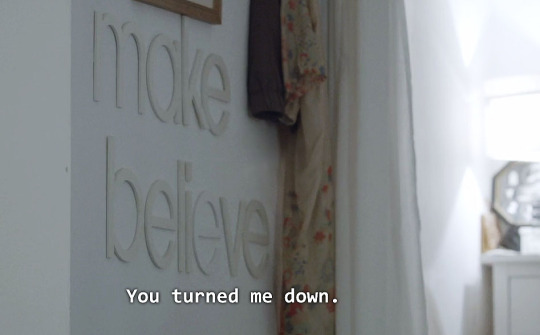
@tjlcisthenewsexy also brings up Kitty Riley and the bathroom scene, but then also says this:
“Sherlock WAS protecting John - protecting him from what Sherlock KNEW was coming very shortly. I mean it’s already in the show, really - “Sherlock is a fake” might as well read “They’re gay”. Kitty Reilly colluded with homophobia (in the form of Jim Moriarty) to put together that shaming article that supposedly lead directly to Sherlock’s suicide. Yep….it’s all in there”.
I do agree with this, and I’d like to linger a bit longer on Kitty’s possible role here, because I believe there’s definitely more to these events than meets the eye. There are so many weird things about the scene in her apartment, and the events leading up to it in TRF, that I can’t help wondering which parts of it are actually ‘real’. So let’s have a closer look.
First of all, John hasn’t written anything on his blog about the central case of TRF - the case that meant Sherlock’s supposed death - except this:

And then this: “But you know what happened? Sherlock saved the lives of two kids. Regardless of anything else, he did that. And they didn't even like him very much. If you really think that he was guilty or that Moriarty wasn't real then feel free to explain this “ (link to the post with Moriarty’s hacking of his blog).
But this makes me suspicious, because it doesn’t exactly make sense; why is it ‘too final’? Why is it so negative for John to write about this? Wouldn’t it be John Watson’s dearest interest to write up the truth about this case, trying to clear Sherlock’s name from media’s slander? That’s what he does in ACD canon, at least; he describes The Final Problem with the events at the Reichenbach Falls in detail, to let the world see that the slandering of Holmes by his enemies is completely false (excerpt from FINA, my bolding):
“It was my intention to have stopped there, and to have said nothing of that event which has created a void in my life which the lapse of two years has done little to fill. My hand has been forced, however, by the recent letters in which Colonel James Moriarty defends the memory of his brother, and I have no choice but to lay the facts before the public exactly as they occurred. I alone know the absolute truth of the matter, and I am satisfied that the time has come when no good purpose is to be served by its suppression. As far as I know, there have been only three accounts in the public press: that in the Journal de Genève on May 6th, 1891, the Reuter’s dispatch in the English papers on May 7th, and finally the recent letters to which I have alluded. Of these the first and second were extremely condensed, while the last is, as I shall now show, an absolute perversion of the facts. It lies with me to tell for the first time what really took place between Professor Moriarty and Mr. Sherlock Holmes”.
But apparently our modern John didn’t want to do this on his blog, in spite of having witnessed Moriarty’s whole performance in Kitty’s apartment. John must have plenty of evidence that show Sherlock’s real part in the case, and he and Molly assisted in the whole chemical analysis at Barts. And what about his own role; if Sherlock was arrested for kidnapping, wouldn’t John be his accomplice? But answering the vile attacks on Sherlock in his comment section John just says “Believe what you like”, and not a word about media’s role. In fact, the media is never even mentioned by John between TRF and Sherlocks return in TEH, in spite of having played such a damning role in Sherlock’s downfall. John does write up some other of their cases after this, but the kidnapping case seems taboo. I sense a kind of fear here; there must be things we’re not told. Was John under pressure?
The circumstances around Sherlock’s arrest in TRF look odd to me, to say the least; apparently he’s a suspect for having figured out how to save the kidnapped children, and because one of the kids got frightened when she saw him. But there’s no actual evidence that we know of, only Donovan’s very dubious speculations about a possible motive, based on an upset child’s reaction. And Sherlock made his deductions about the place at the police station, in front of everyone. Basically, they had nothing on him to hold water in a court case. How can anyone be arrested for kidnapping on those grounds? And if Sherlock wanted to avoid being photographed by the media when brought in by a police car, why not just take a cab to the police station by himself? After all, that’s what he usually does!
But instead, he sits and waits to get collected, and then he escapes together with John, and drags both of them handcuffed in front of a bus, based on the extremely risky prediction that the assassin might save them. Is it really worth risking John’s life to prove a point about a computer code? Weird... And then there’s Kitty. Why break into her apartment? This guy is now wanted by the police, and the first thing he does is committing a crime at the very place of the journalist who has been slandering him in the press? Anyway, when John and Sherlock arrive at Kitty’s apartment, the wisest thing to do would be to use any tool in her kitchen to immediately get rid of the handcuffs, right? And then perhaps search her apartment for clues? Nope. Instead, they just sit handcuffed in the dark, waiting for the journalist with her door open.
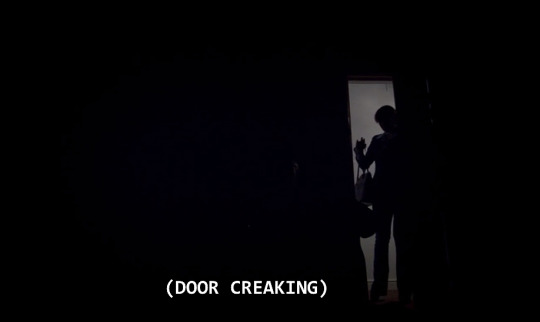
I think the symbolism of this is very apt; they’re closely and firmly bound to each other, but completely in the dark about it! :))) And then Media comes to reveal it...

More absurdities: Kitty shows them her still un-published article, as if this would be ‘proof’ that Sherlock is a fraud. Let’s take a closer look at it. This is her earlier brief news flash in The Sun, advertising the coming article:

Transcript: SHERLOCK: THE SHOCKING TRUTH - EXCLUSIVE
(Close Friend Richard Brook Tells All)
SUPER-SLEUTH Sherlock Holmes has today been exposed as a fraud in a revelation that will shock his new found base of [ado]ring fans. Out-of-work actor Richard Brook revealed exclusively to THE SUN that he was hired by Holmes in an elaborate deception to fool the British public into believing Holmes had above-average ‘detective skills’. Brook, who has known Holmes for decades and until recently considered him to be a close friend, said he was at first desperate for the money, but later found he had no [...]
And this is the still un-published manuscript that Kitty shows Sherlock and John in her flat - the document that Kitty calls ‘conclusive proof’ (together with some loose papers from Moriarty which do not look like cuttings from newspapers; the paper is entirely white and there’s no logo or date or similar evidence that they have actually been published):
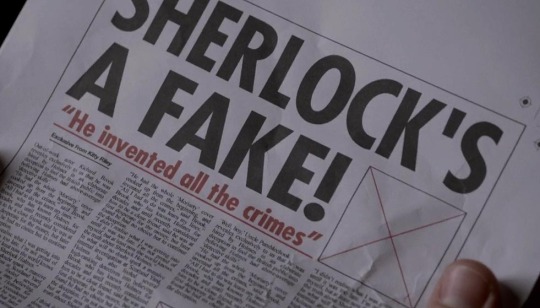
Transcript: SHERLOCK’S A FAKE!
“He invented all the crimes” (Exclusive from Kitty Riley)
Out-of-work actor Richard Brook reveals exclusively to us that he was hired by Holmes in an elaborate deception to fool the British public into believing that Holmes had above average ’detective skills’. “He had the whole ‘Moriarty’ cover cooked up from the beginning and invented all the crimes”, said Brook. “All I had to do was learn my lines.” Brook, who has known Holmes for decades and until recently considered him to be a close friend, said he was at [...] desperate for the money but later [...] he had no choice but to continue the deception. I didn’t realise what I was getting into until it was too late. I’m not proud of myself, but at least now the world knows the truth about Sherlock Holmes”. In what will no doubt spark a massive internal investigation at Scotland Yard, Holmes has also fooled several high-ranking detectives into believing.
‘Well boy’, Uncle Pumblechook [...]
But a closer look at Kitty’s supposed manuscript reveals that this same text (except for the ‘Uncle’ part) is copy-pasted and repeated again and again – this is indeed fake news! And we never got to know what evidence they actually had on Sherlock, the incriminating facts that ‘only someone close to Sherlock could know’ and that Mycroft supposedly ‘blabbed’ about to Moriarty. What was it about? His drug problems? Youth crimes? Mental health issues?Mythomania? I’m still at a loss to see how these papers could prove that Sherlock was a ‘fake’ who had ‘invented all the crimes’ without further details. The fact that we never get any specifics is extremely suspicious to me; what crimes exactly? Is he supposed to have invented Jennifer Wilson’s murder? Eddie Van Coon? Alex Woodbridge? If the crimes weren’t committed, what had NSY been investigating? Fake bodies? And if Sherlock was suspected of having committed them all, why wasn’t John suspected as an accomplice? It doesn’t make sense...
It strikes me, however, that Kitty’s most juicy bit that she wanted to publish about Sherlock, the one about ‘you and John Watson - just platonic or?’ is no longer mentioned in all this. Not a word about the ‘confirmed bachelors’ anymore - why is that? This is all about Sherlock, not John. I very much agree with @tjlcisthenewsexy here; “Sherlock is a fake” might as well read “They’re gay”...
‘Real’ newspapers
To give a more complete picture of media’s role, I’ve made a quick research about the different newspapers shown in BBC Sherlock; which are they and what do they say? It turns out that most of them actually exist in real life. Below is a short presentation and some of their headlines in the show:
The Daily Express (UK ‘middle market’, conservative tabloid)
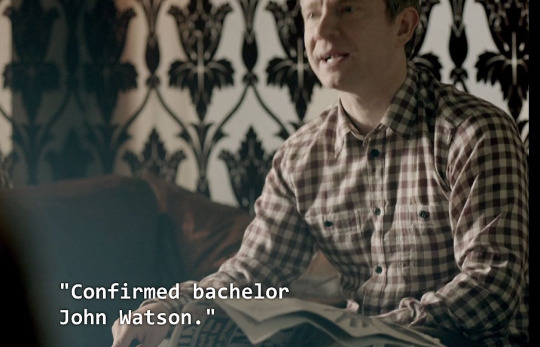
“Boy, 18, kills himself inside sports centre.” (ASiP) “Bachelor John Watson” (TRF) “Crime of the century” (TRF) “Moriarty walks free. Shock verdict at Old Bailey trial” (TRF) ”Shag-a-lot Holmes” (HLV)
Going by the insinuations about John’s sexual orientation, this paper is depicted as sensationalist in BBC Sherlock, which there’s also lots of evidence for in real life, in spite of being described as ‘middle market’ (see Wikipedia link above). It has been accused of xenophobia, among other things.
Sunday Express (belongs to The Daily Express. Known for controversies )
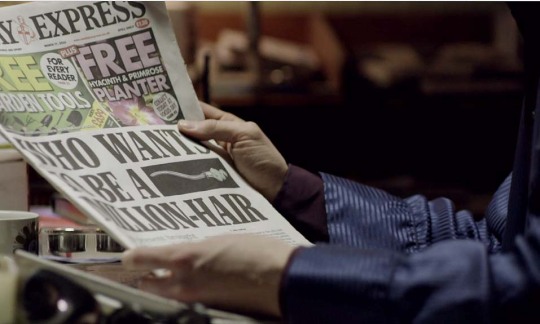
“Who wants to be a million-hair” (TBB)
Daily Star (’Redtop’ UK tabloid, known for controversies, same publisher as Daily Express)
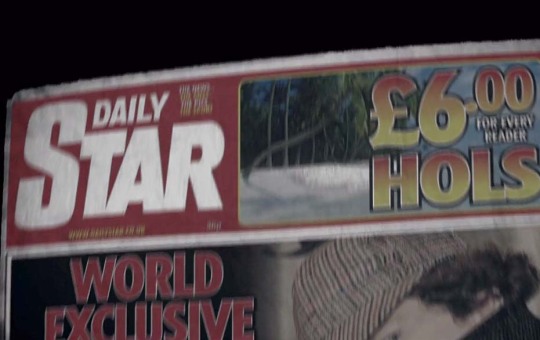
“World Exclusive Boffin Sherlock solves another” (TRF) “How was he ever acquitted” (about Moriarty; TRF)
The Daily Mail (British conservative ‘middle-market’ tabloid) REPORTER 3: Yes, but if they are murders, how do people keep themselves safe? LESTRADE: Well, don’t commit suicide. (The reporter looks at him in shock. Donovan covers her mouth and murmurs a warning.) DONOVAN: “Daily Mail.”
The Times (British conservative newspaper; not regarded as ‘tabloid’)

John looks at the article reporting Beth Davenport’s apparent suicide. Next to a large photograph of Beth is a smaller one showing the man who just visited the flat and identifying him as D.I. Lestrade. (ASiP)
The Daily Telegraph (aka The Telegraph. British daily broadsheet newspaper)
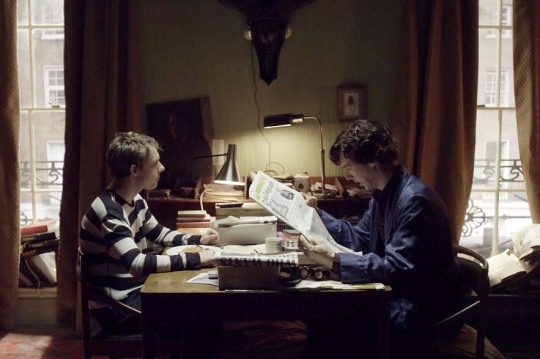
Sherlock reading, headline invisible (TBB)
The Sunday Telegraph (owned by The Daily Telegraph)
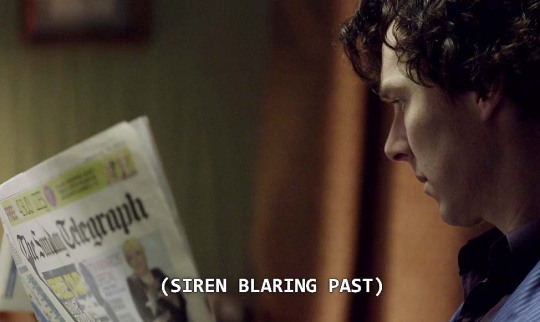
Sherlock reading, headline invisible. Picture seems to show Connie Prince (TBB)
Daily Mirror (British ‘redtop’ tabloid)
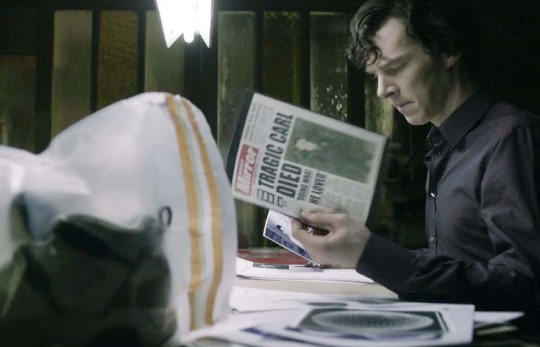
“Tragic Carl died doing what he loved” (Sherlock’s clip; TGG) “7 times a night in Baker Street” (HLV)
The Guardian (British daily newspaper known for liberal or left-wing viewpoints)

“Amateur detective to be called as expert witness. Scotland Yard calls upon ‘nation’s favourite detective’ in Moriarty trail” (TRF) “The case is riddled with irony and intrigue but perhaps reflects a deeper malaise that seems to be at the heart of a society” (TRF) “Shock verdict at trial”(TRF) “Moriarty vanishes” (TRF) “What next for the Reichenbach hero” (TRF) “Lord Smallwood suicide” (HLV)
The Sun (British ‘redtop’ tabloid, many controversies around misogyny, homophobia and Thatcherism)
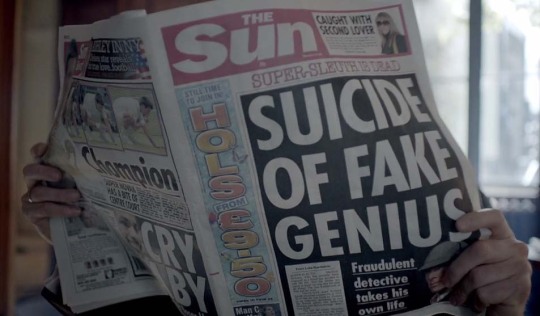
“Sherlock – the shocking truth” (by Kitty Riley, TRF) ”Sherlock’s a fake! ‘He invented all the crimes’” (unpublished, Kitty Riley, TRF) “Suicide of fake genius” (TRF)
Global CAM News (Invented newspaper, as far as I can see)

“Trepoff ‘Guilty’ Sensation!” (MHR)
The Independent (British newspaper, ‘social-liberal’; since 2016 it only exists online)
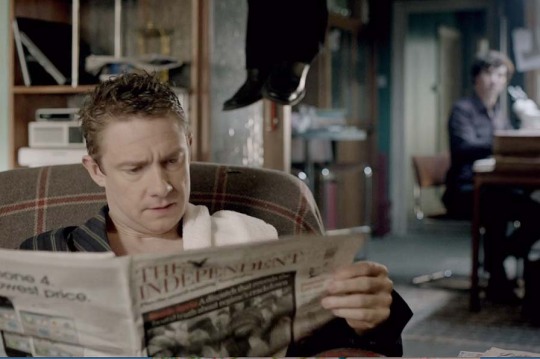
John reading, headline invisible (TRF)
When making this list, some of the newspapers reminded me of these lines from Tom Robinson’s satirical song from the seventies (my bolding):
Glad to be Gay (Lyrics) Pictures of naked young women are fun In Titbits and Playboy, page three of The Sun There's no nudes in Gay News, our one magazine But they still find excuses to call it obscene Read how disgusting we are in the press The Telegraph, People and Sunday Express Molesters of children, corruptors of youth It's there in the paper, it must be the truth
Three of these six newspapers and tabloids are figuring in BBC Sherlock, one of them (The Sun) highly contributing to Sherlock’s Fall by carrying false and defamatory news about him. And there’s also this, in the rooftop scene at the end of TRF:
JIM: “Genius detective proved to be a fraud.” I read it in the paper, so it must be true. I love newspapers. Fairytales.

This may be a complete coincidence, of course, but I did find some other possible references to Tom Robinson too, which I described in this meta some time ago.
OK, this is already a monster-post, but just one more little observation:
I know we shouldn’t lend too much credibility to the media, right? But ‘you can’t kill an idea, can you’? Not once it’s made a home in your head... :)

Headline in TSoT: “Potential freezing spell puts funeral directors on red alert”. So, maybe a ‘freezing spell’...

...should put us on ‘red alert’...
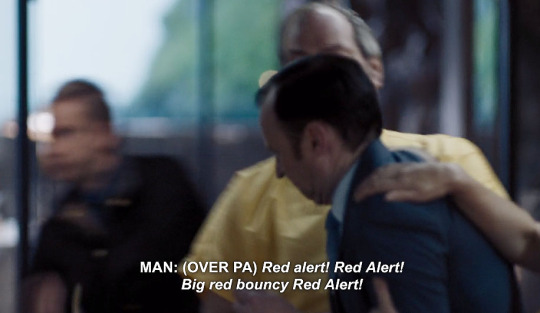
...and not ‘bury’ this show entirely just yet? I’ll leave you to your deductions. ;)
@ebaeschnbliah @raggedyblue @sarahthecoat @gosherlocked @sagestreet @tjlcisthenewsexy @221bloodnun @elldotsee @mrskolesouniverse @whimsicalethnographies @sherlocks-salty-blog @fellshish
76 notes
·
View notes